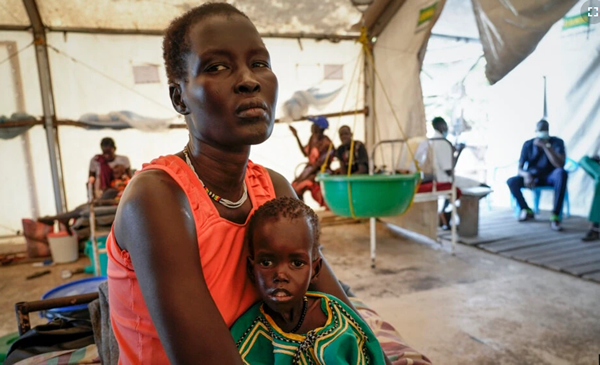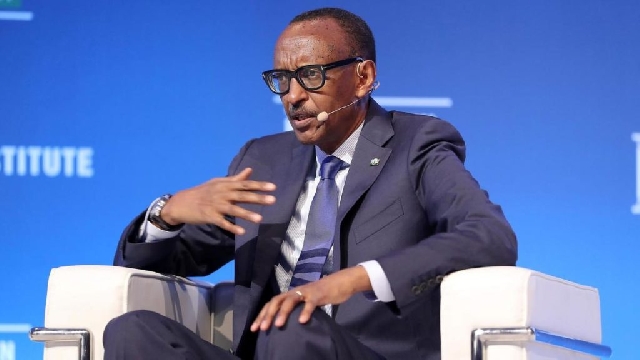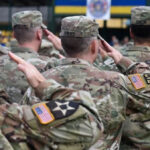
Two senior United Nations officials raised the alarm Friday that an attack on the North Darfur capital of El Fasher could be imminent and may trigger a deadly intercommunal conflict across Darfur.
“In Darfur, recent reports indicate a possible imminent RSF attack on El Fasher, raising the specter of a new front in the conflict,” U.N. political and peacebuilding chief Rosemary DiCarlo told the Security Council.
The RSF are the Rapid Support Forces, the rebel militia that has been fighting the Sudanese Armed Forces (SAF) for the past year. The two generals leading them were once allies in Sudan’s transitional government after a 2021 coup but have become rivals for power.
The war began last April in the capital, Khartoum. It has since spread to other parts of the country, forcing more than 8 million people from their homes in search of safety. Nearly 2 million of them have fled Sudan to neighboring countries. Of those who remain, 25 million need humanitarian assistance.
DiCarlo said clashes between the RSF and SAF-aligned members of the Joint Protection Forces have erupted in Mellit, a strategic town to the north of El Fasher.
“Fighting in El Fasher could unleash bloody intercommunal strife throughout Darfur,” she said. “It would also further impede the delivery of humanitarian assistance in an area already on the brink of famine.”
El Fasher is an established humanitarian hub. Fighting there would make it even more dangerous and complicated to store and deliver aid.
“Beyond Darfur, greater Khartoum continues to be the epicenter of fighting between the SAF and the RSF,” DiCarlo added. “Galvanized by recent gains, the SAF has intensified aerial raids in Khartoum, the Kordofan regions and parts of Darfur.”
The U.N. says the violence threatens 800,000 civilians living in El Fasher and risks setting off more violence in other parts of Darfur – where more than 9 million people need humanitarian assistance.
“On 13 April, following weeks of rising tensions and airstrikes, RSF-affiliated militias attacked and burned villages west of El Fasher,” Edem Wosornu told council members. “Since then, there have been continuing reports of clashes in the eastern and northern parts of the city, resulting in more than 36,000 people displaced,” the director of operations and advocacy in the Office for the Coordination of Humanitarian Affairs said.
She said medical charity Doctors Without Borders, or MSF, has reported that more than a hundred trauma patients have arrived at their El Fasher facility in recent days but said the number of civilian casualties is likely much higher.
Final battle for Darfur
A report released Friday by the Yale University Humanitarian Research Lab says satellite imagery and open-source information indicates that the RSF is either close to El Fasher or already inside its eastern and northeastern neighborhoods.
“At least 11 villages are confirmed burned to the ground on the western access on the approach to El Fasher,” Nathaniel Raymond, executive director of the lab, told VOA.
He said it is their assessment that the RSF likely controls the north, east and west roads into El Fasher, and they have credible reports that the Sudanese army had to be re-supplied by air in the past week.
“This suggests that SAF has already assessed that they do not have a ground route for resupply or escape,” Raymond said.
That means civilians are also trapped, including thousands of African Zaghawa, Masalit, Fur, and other non-Arab ethnic groups.
“This is the final battle for Darfur,” Raymond said. “If RSF is victorious, then they will be able to complete the genocide begun at the beginning of the 21st century, and all indications are consistent with the fact that they intend to.”
He said a victory in El Fasher would be pivotal, giving the RSF control over all the regional capitals in the Darfur region and creating a stronghold from which they can fight the remaining elements of the SAF for years to come.
Darfur saw large-scale ethnic violence, crimes against humanity and genocide in the early 2000s when Arab “Janjaweed” militias targeted the Fur, Masalit and Zaghawa.
Source: voanews.com







